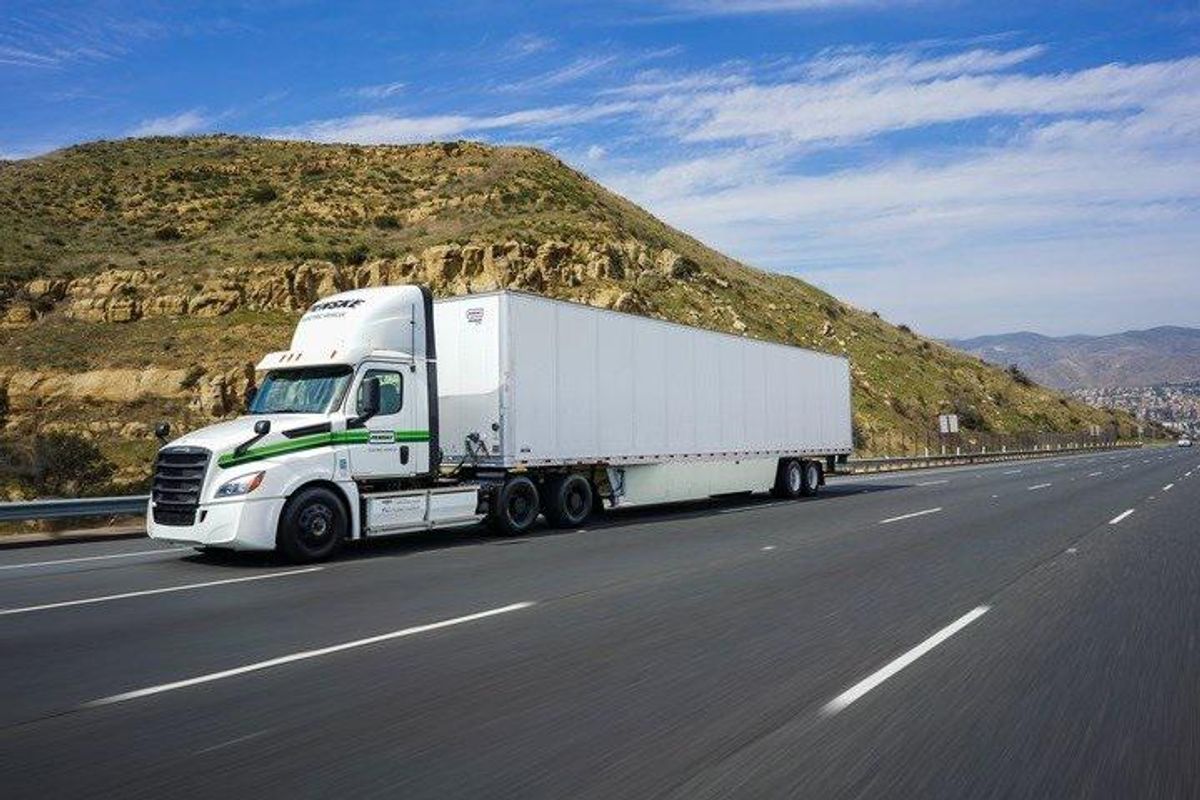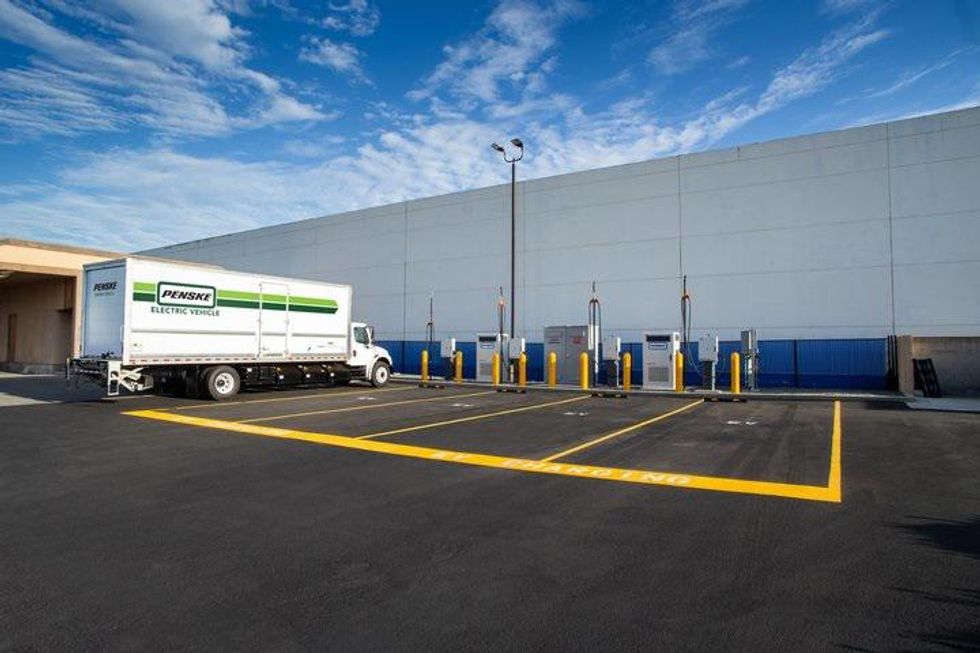
Sponsored by Penske Transportation Solutions, 2021 State of Sustainable Fleets Report is Now Available
The second annual State of Sustainable Fleets report is now available for review and download at no cost via www.StateofSustainableFleets.com. Site visitors can sign up for the live virtual launch event today, which will also be available for later viewing.
Clean technology consulting firm and producers of the annual Advanced Clean Transportation (ACT) Expo, Gladstein, Neandross & Associates (GNA), has created an analysis examining the current state of today's leading on-road clean vehicle technologies for fleet operators.
Produced with support from the report's title sponsors Daimler Trucks North America, Penske Transportation Solutions, and Shell Oil Company, and supporting sponsors Cummins, Inc., DTE Energy, and Geotab, the report offers additional insights into the key trends shaping the clean vehicle market.
Drew Cullen, Penske senior vice president fuels and facility services: "As the transportation industry continues its efforts to run cleaner, we are excited to be at the forefront of this movement. Once again, we are pleased to serve as a report sponsor. Our electric truck efforts at Penske have gone well and its success is a great example of a truly collaborative public and private partnership."
Clean Technologies Continue Transportation Industry Advancement
The assessment's findings are sourced via hundreds of survey results from medium- and heavy-duty fleet operators across the U.S. as well as industry data and the author's independent technical analysis.
The 2021 State of Sustainable Fleets assessment confirmed that, even in an extreme outlier year due to the COVID-19 pandemic, the growth of clean technologies continued to rapidly accelerate, with an increase in fleet orders and deliveries for natural gas and battery-electric vehicles as well as for lower carbon renewable fuels.
Fleet survey data found that many clean vehicle technologies and fuels are providing both economic and environmental sustainability benefits when each fuel and technology is best matched to the right application and duty cycle.
The analysis indicates that the coming years will be strong for the growth of the sustainable fleet technology sector with 83% of surveyed early adopter fleets indicating they plan to increase their use of clean vehicle technologies in the next five years.
The assessment focuses on the leading sustainable fuel and vehicle technologies being adopted in the medium- and heavy-duty fleet sectors: gasoline/diesel fleet and engine efficiency, natural gas vehicles, propane vehicles, battery-electric vehicles, hydrogen fuel cell electric vehicles, and renewable fuels for each of the technology options. The analysis covers public, private, and for-hire fleets, including school, municipal, shuttle, urban delivery, refuse, public utility, transit, regional-haul and long-haul sectors.
Report Key Findings
Fleets reported significant business benefits when clean vehicle technologies are mature and appropriately suited to their sector, including fuel cost savings, improved total cost of ownership, and reduced maintenance. The improved environmental performance of these technologies also remained a benefit consistently confirmed by surveyed fleets.
The year's assessment concludes that leading fleet operators are utilizing a mixture of clean technologies along with incumbent fuels and efficiency measures, enabling them to realize immediate emission reductions while satisfying their own increased commitments on sustainability, and demands from customers for the same. This diversified technology landscape has created a multi-fuel near-term reality for many of today's fleets.
In support of this, the report put forward five key findings:
- Fleets report superior total cost of ownership and fuel costs savings when operating compressed natural gas in the refuse, transit, and dedicated heavy-duty sectors and on propane in the school, paratransit, and urban delivery sectors.
- Battery-electric vehicles are poised to become a leading clean fleet technology in three to five years. Commitments by several large fleets will require vehicle deployments in the tens of thousands per year. While vehicle costs remain high for this developing technology, and manufacturers are just beginning to enter serial production, investment to build this market is already enormous and growing.
- Fuel producers and vehicle makers continued investing hundreds of millions globally towards the already billion dollars committed to build a foundation for fuel cells, doubling the number of models coming to market, mostly for transit and Class 8 tractors.
- Two powerful drivers—policy mandates and ambitious sustainability goals—are creating demand for all clean technologies and will continue to drive growth.
- Sustainability benefits, including the emissions reduction potential of vehicles and fuel, are improving for nearly all existing clean vehicle technologies, including efficiency, renewable fuels, and cleaner vehicles. Sustainability benefits remain a top motivator for fleets.
"This year's analysis and extensive fleet survey reinforces what we have been witnessing across the industry," said Erik Neandross, CEO of GNA, the firm authoring the report. "With the total cost of ownership increasingly being confirmed across multiple clean fuel and technology options, fleets continue to expand their commitment to and investment in these sustainable vehicle options, a trend we fully expect to continue to accelerate in the coming few years."
By "Move Ahead" Staff
